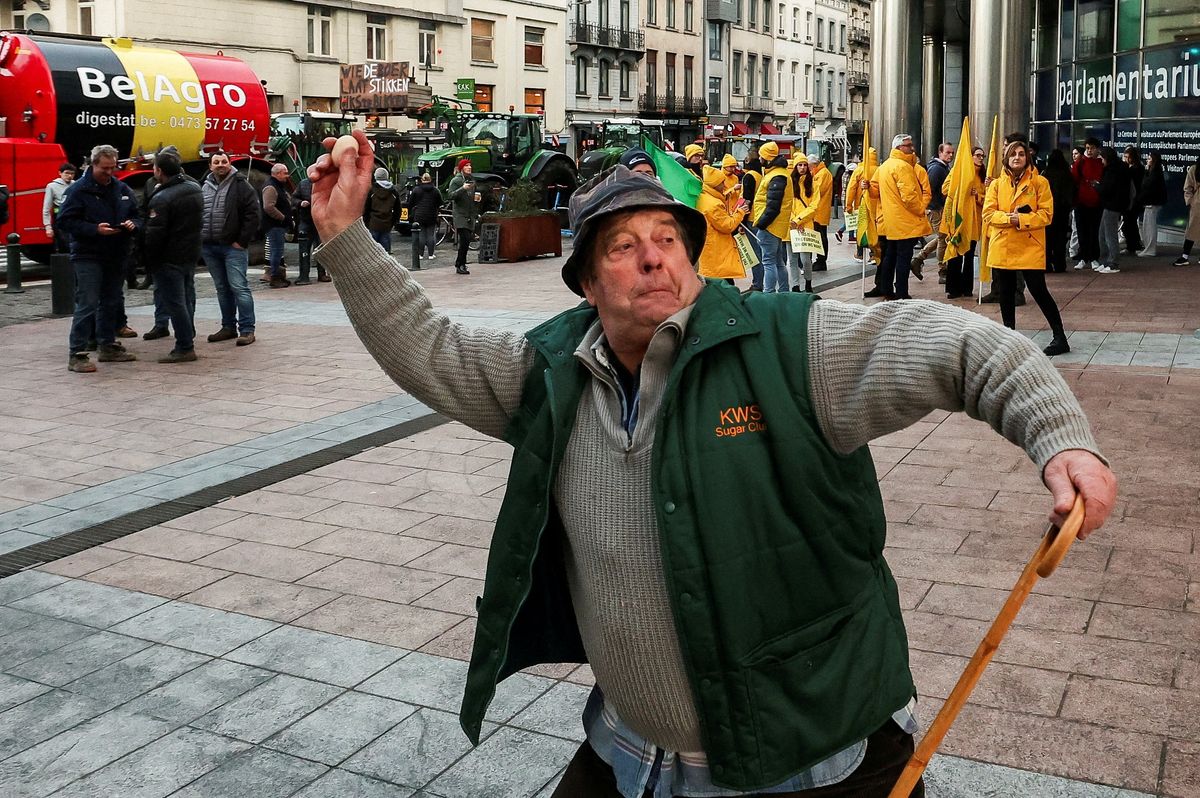Their complaints: EU climate change regulations are costing farmers time and money, while climate change-fueled disasters devastate crops.
Russia’s invasion led to skyrocketing fertilizer and energy prices, and now, with Ukrainian grain flooding their markets, farmers who were already feeling disadvantaged by cheap imports are voicing their exasperation.
What they want: Local grievances may vary, but on the whole: less red-tape and environmental restrictions, more subsidies (for small farmers, in particular), and less foreign competition.
Farmers want to reduce foreign imports by limiting free trade agreements, especially one with the Mercosur states – Brazil, Argentina, Uruguay and Paraguay. French President Emmanuel Macron is under intense domestic pressure to push European Commission President Ursula von der Leyen to blow up the deal.
EU elections effect: The protests could amplify a shift to the right in the European Parliament and imperil the EU's green agenda. The far right, for whom farmers represent a growing constituency, is expected to make gains in the June elections.
In response, the European Commission announced it would curb Ukrainian imports, a blow to Ukraine’s economy and war effort, while France and Germany both watered down their proposals to end gasoline subsidies.
To address foreign competition concerns, Macron is pushing the EU to abandon free trade agreement talks with the Mercosur countries in South America. If he fails, it would give his opponent Marine Le Pen the advantage in France’s next election. Von der Leyen, meanwhile, would lose a powerful ally in Macron, a significant loss as she contemplates running for a second term.


















